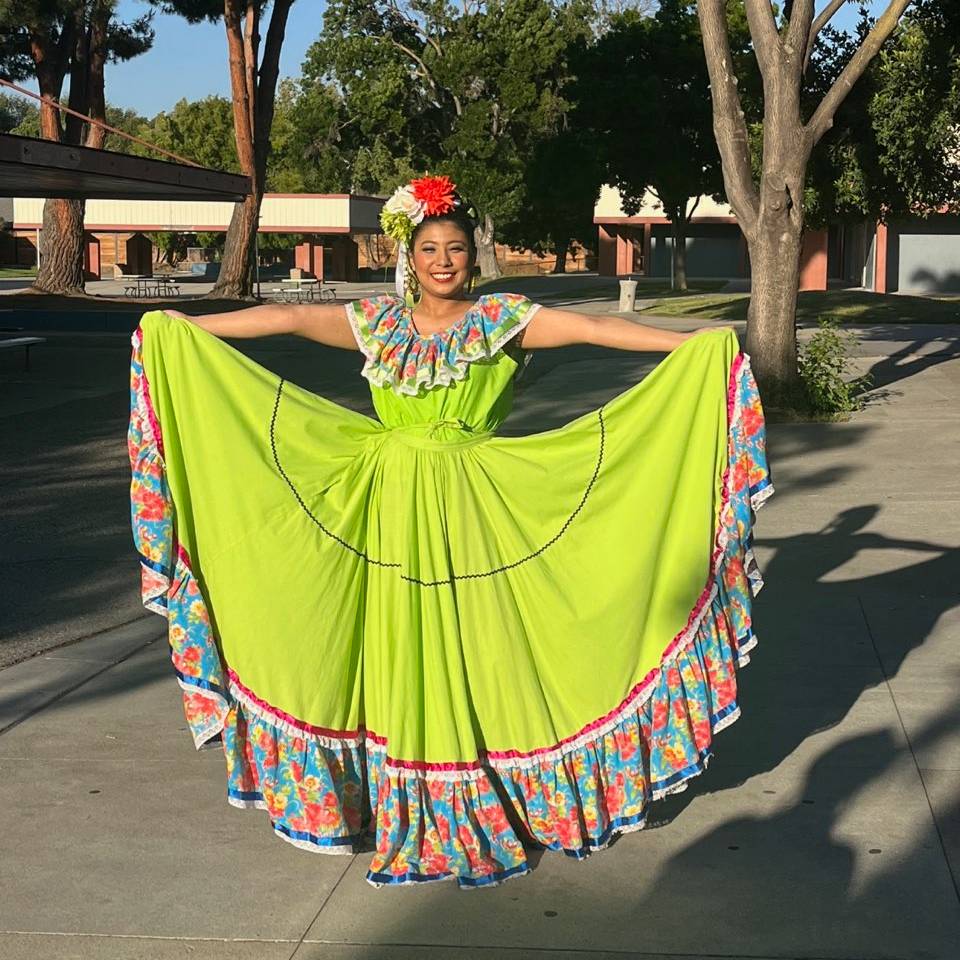Spotlight on SJSU Chicana/o Vanguards
Consuelo Jimenez Underwood

Inspired by her indigenous maternal ancestors and border experiences, Underwood creates art that reflects those aspects of her life.
Additionally, Underwood has won several awards for her work, including the US Latinx Art Forum (2022) and the Masters of the Medium Award in Fiber (2021).
To check out more of her artwork, follow her at cju.art.threads or check out her portfolio at consuelojunderwood.com
Credit: Underwood's profile was compiled by CCS undergraduate student assistant, Mila Cottrell.
Activist & Veteran: Charley Trujillo
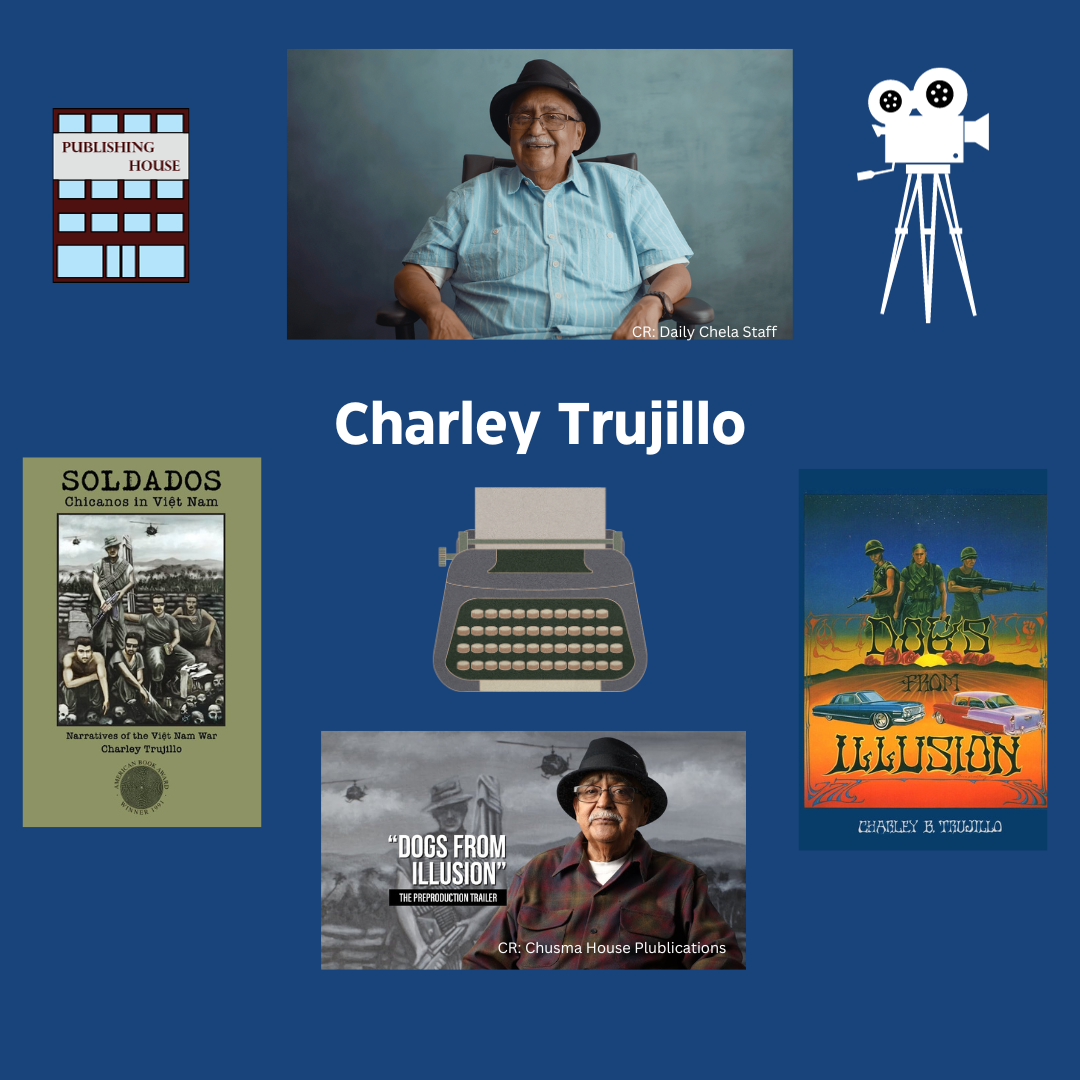
Raised in Concord, California, Charley Trujillo worked in agriculture alongside his father.
Trujillo is a Chicano veteran who served as an infantry sergeant in the Vietnam War. After the war, Trujillo joined a non-profit organization called Vietnam Veterans Against the War.
Trujillo earned a B.A. in Chicano Studies at UC Berkeley and a master’s in Chicana and Chicano Studies, formerly Mexican American Studies, at San Jose State University (SJSU) in 1979. He went on to become an ethnic studies professor for 15 years.
Trujillo wrote a book of 19 stories about Chicanos in the Vietnam War, “Soldados: Chicanos in Việt Nam.” The book was rejected by many publishing companies, leading him to create his own publishing company, Chusma House Publication, which specializes in multiethnic literature. Later, the book was developed in a PBS show in 2003 that Trujillo directed and co-produced.
Currently, Trujillo is in pre-production to direct and produce a Vietnam War feature film, “Dogs From Illusion,” based on his novel of the same name. Additionally, Trujillo produces and directs videos for his Ethnic Studies Learning Channel.
To learn more about his publishing company, visit chusmahouse.com
Artist: Amalia Mesa-Bains
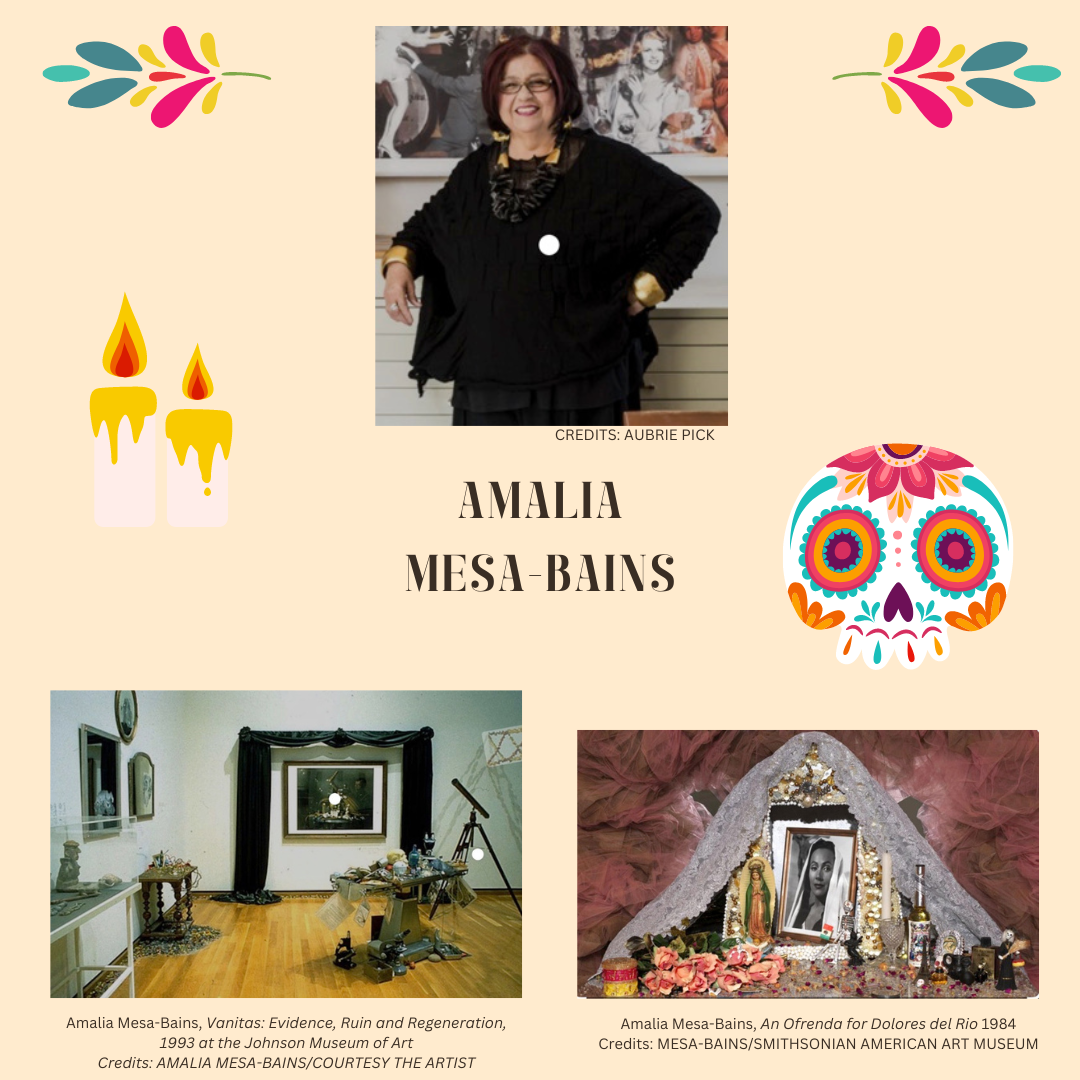
Amalia Mesa-Bains is a Chicana contemporary artist and activist who was encouraged by her mentor to start making ofrendas for the Day of the Dead, Dia de los Muertos.
Born to Mexican parents, she didn't start questioning her sense of identity until she met Luis Valdez at SJSU and saw his play, "The Shrunken Head of Pancho Villa."
Mesa-Bains graduated from SJSU in 1966 with a B.A. in Painting and is the only Chicana awarded the MacArthur Genius Grant.
Numerous exhibitions include her work, such as the Archaeology of Memory, consisting of 60 pieces of different mediums, at the Berkeley Art Museum and Pacific Film Archive (BAMPFA). She also taught for 20+ years at CSUMB and is now a Professor Emerita.
To learn more about her and her artwork, you can follow her @dr_amalia_says or amaliamesabains.com
Playwright, Screenwriter, Director: Luis Valdez
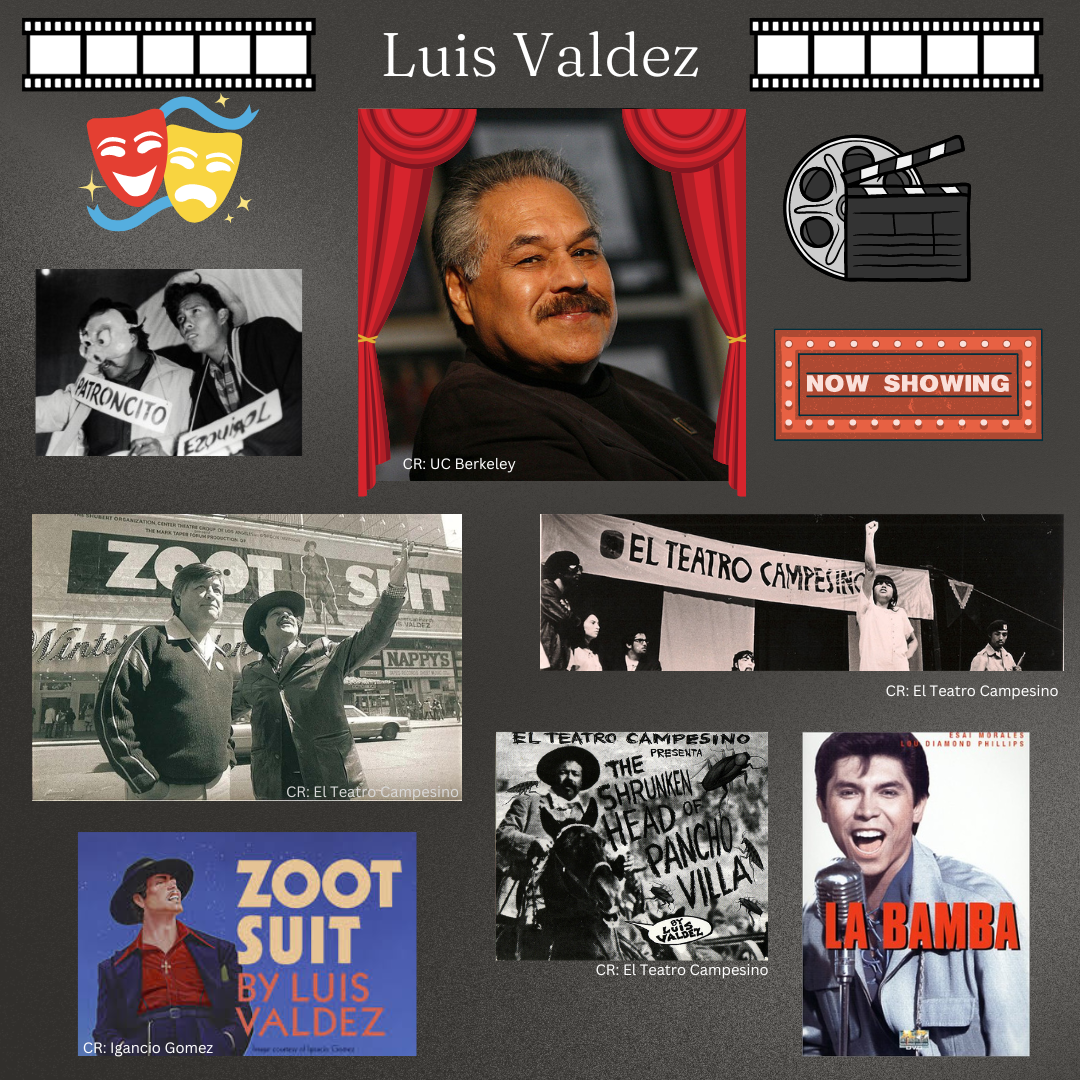
Luis Valdez was born in Delano, California, to immigrant parents who moved around following the seasons of agriculture.
Valdez attended SJSU and graduated in 1965 with a B.A. in English with a playwright emphasis. Shortly after graduating, he directed his first official production of The Shrunken Head of Pancho Villa.
Later, he teamed up with Cesar Chavez to fight for farm workers' rights. During the United Farm Worker (UFW) Movement, Valdez and Agustin Lira founded El Teatro Campesino to educate and bring awareness to the working conditions of farm workers.
Valdez also wrote and directed the play Zoot Suit (1979) and produced and directed La Bamba (1987).
Luis Valdez's impact on the world of theater is still present today. He has taught at many institutions and was a founding professor at California State University, Monterey Bay.
Here is more information about his work with El Teatro Campesino: elteatrocampesino.com/about-luis and @elteatrocampesino
Artist: Rupert Garcia
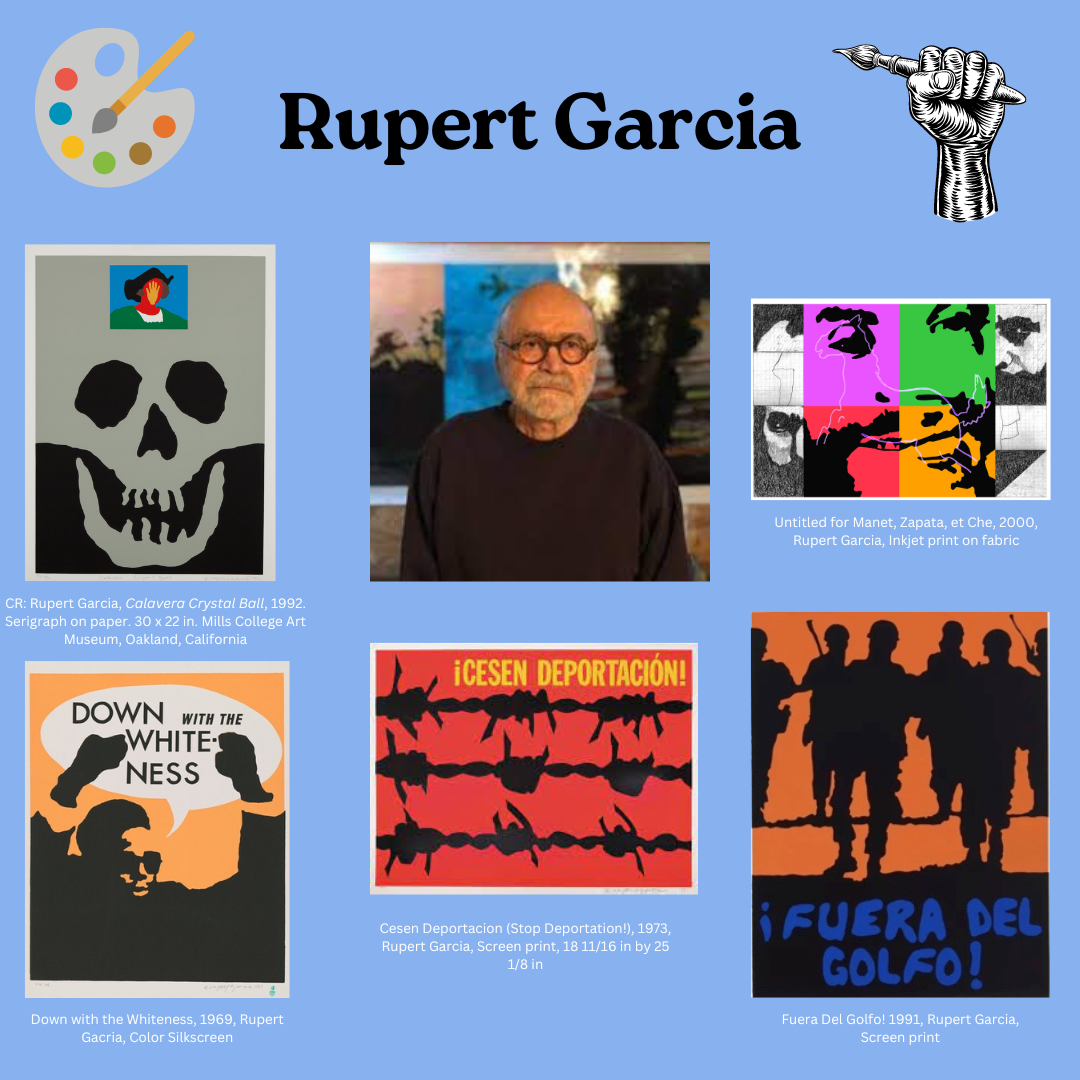
Rupert Garcia was born in French Camp, California, in 1941. Garcia was a part of the U.S. Air Force and later, through the G.I. Bill, attended San Francisco School for the Arts, where he obtained a B.A. in painting.
In 1968, Garcia was part of the student protests of the Third World Liberation Front, which led to Ethnic Studies at San Francisco State University and UC Berkeley in 1968 and 1969, respectively. These events led to his consciousness-raising on social injustices faced by Chicana/o, Black, Native, and Asian peoples, which he communicated in his artwork, primarily his iconic posters of the 1960s and 1970s civil rights era. In his prints, he portrays the racism and discrimination that Latinx and BIPOC communities face in the U.S.
Garcia also has two M.A. degrees from UC Berkeley in Printmaking/Silkscreen and Art History and a Ph.D. in Art Education from UC Berkeley.
Rupert Garcia is not an alumnus but taught in the Art Department at SJSU.
Poet and Publisher: Lorna Dee Cervantes
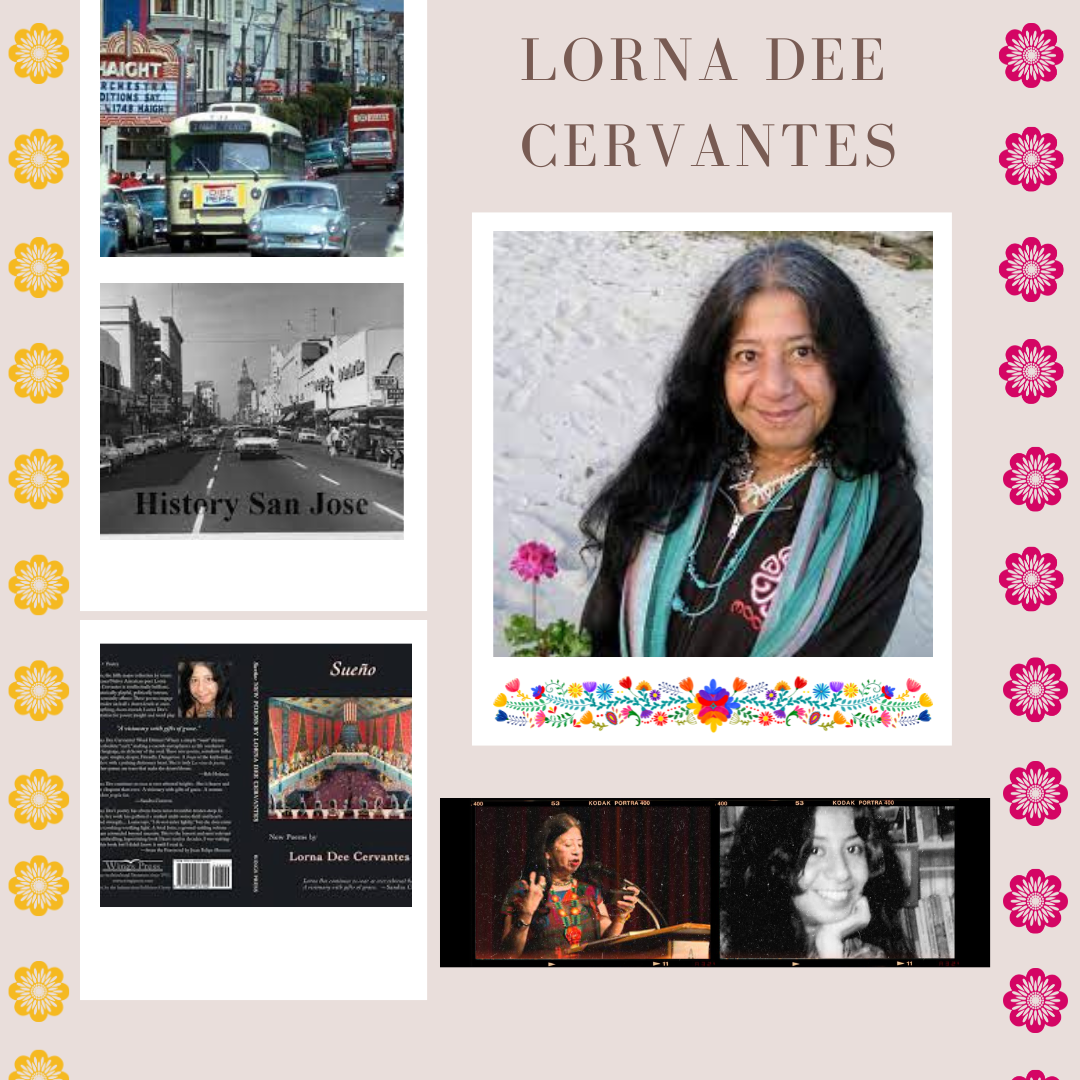
Lorna Dee Cervantes was born in San Francisco to parents of Mexican and Native American ancestry. She was raised in San Jose, attending SJSU and obtaining a B.A. in Creative Arts.
Cervantes' parents did not teach her Spanish because of ongoing racism, which led to her desire to express herself creatively and for her poetry to flourish.
Emplumada (1981), her first poetry collection, is essential to Chicano literature and won the American Book Award in 1982. The collection tells the story of finding one’s identity.
Some of Cervantes’ other works include From the Cables of Genocide: Poems on Love and Hunger (1991), Ciento: 100 100-Word Love Poems (2011), and Sueño (2013). Many anthologies include her work, such as Unsettling America: an Anthology of Contemporary Multicultural Poetry (1994). Additionally, Cervantes is part of the Selected Works at the Library of Congress.
In 1976, she founded and currently serves as editor-in-chief of Mango, a literary review that publishes writing by the Chicano/a community that you can follow on Instagram: @mangopublications
Credit: These profiles were compiled by CCS undergraduate student assistant, Yuliana Contreras-Abrego.
